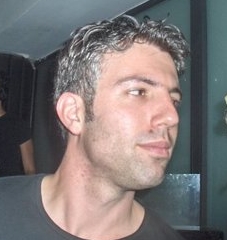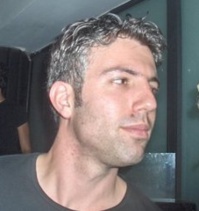What is Ethereum?
Ethereum is a cryptocurrency and a blockchain platform with smart contract functionality. It’s basically a decentralized platform for developers to build apps on top of and it was invented by Vitalik Buterin in 2013.
Ethereum can be used to codify, decentralized, secure and trade just about anything: voting, domain names, financial exchanges, crowdfunding, company governance, contracts and agreements of most kind, intellectual property.
But what does all of this have to do with Ether?
Well, Ether is the currency of the Etherium platform. Ether will be required by anyone wishing to build upon or use the Ethereum platform. Just like BItcoin, Ether can be traded around the web and mined. In a second I’ll show you exactly where you can buy it.
The total supply of ether and its rate of issuance was decided by the donations gathered on the 2014 presale of the currency. The results were roughly:
- 60 million ether created to contributors of the presale
- 12 Million (20% of the above) were created to the development fund, most of it going to early contributors and developers and the remaining to the Ethereum Foundation
- 5 ethers are created every block (roughly 15-17 seconds) to the miner of the block
- 2-3 ethers are sometimes sent to another miner if they were also able to find a solution but his block wasn’t included (called uncle/aunt reward).
The founders of Ethereum state that Ether is not a currency as much as it is “crypto-fuel”, meaning it’s a token that has one main use – to pay for the Ethereum platform. This means that you probably won’t be able to buy stuff with Ether online. However you can still trade it and invest in it in hopes its price goes up.
Because Ether is less “mature” than Bitcoin at the moment, it’s less suitable for non technical people. For example, you can download Ether’s official wallet app from github, but there’s no “user friendly” version of it yet. There’s also MyEtherWallet and EthereumWallet available with a simple interface.
How to buy Ether (credit card, wire transfer and cash)
At the moment you can get Ether from several Bitcoin exchanges like Kraken, poloniex and shapeshift.io. You can also buy Ether directly from brokers like Coinmama and Coinhouse using simpler payment methods like credit cards.
Mining Ether uses proof-of-work. It’s similar to Bitcoin mining in a sense that there is a diminishing block reward for every block mined.
You can try mining Ether using your own computer (CPU mining), but it will probably not get you too far. However, if you have a dedicated GPU set up for the task then you can get some real rewards. For information on exactly how to mine Ether visit Ethereum’s official web page.
Ether and Ethereum in General are disruptive technologies that are set to change how the Internet works. Whether it succeeds or not remains to be seen, but for now you can easily get your share of “the Internet’s future” by following the steps mentioned above.
By Ofir Beigel, Owner at 99 Coins ltd.
Blogger and owner of 99Bitcoins. I've been dealing with Bitcoin since the beginning of 2013 and it taught me a lesson in finance that I couldn't get anywhere else on the planet. I'm not a techie, I don't understand "Hashes" and "Protocols", I designed this website with people like myself in mind. My expertise is online marketing and I've dedicated a large portion of 99Bitcoins to Bitcoin marketing.
www.99bitcoins.com/
Ethereum is a cryptocurrency and a blockchain platform with smart contract functionality. It’s basically a decentralized platform for developers to build apps on top of and it was invented by Vitalik Buterin in 2013.
Ethereum can be used to codify, decentralized, secure and trade just about anything: voting, domain names, financial exchanges, crowdfunding, company governance, contracts and agreements of most kind, intellectual property.
But what does all of this have to do with Ether?
Well, Ether is the currency of the Etherium platform. Ether will be required by anyone wishing to build upon or use the Ethereum platform. Just like BItcoin, Ether can be traded around the web and mined. In a second I’ll show you exactly where you can buy it.
The total supply of ether and its rate of issuance was decided by the donations gathered on the 2014 presale of the currency. The results were roughly:
- 60 million ether created to contributors of the presale
- 12 Million (20% of the above) were created to the development fund, most of it going to early contributors and developers and the remaining to the Ethereum Foundation
- 5 ethers are created every block (roughly 15-17 seconds) to the miner of the block
- 2-3 ethers are sometimes sent to another miner if they were also able to find a solution but his block wasn’t included (called uncle/aunt reward).
The founders of Ethereum state that Ether is not a currency as much as it is “crypto-fuel”, meaning it’s a token that has one main use – to pay for the Ethereum platform. This means that you probably won’t be able to buy stuff with Ether online. However you can still trade it and invest in it in hopes its price goes up.
Because Ether is less “mature” than Bitcoin at the moment, it’s less suitable for non technical people. For example, you can download Ether’s official wallet app from github, but there’s no “user friendly” version of it yet. There’s also MyEtherWallet and EthereumWallet available with a simple interface.
How to buy Ether (credit card, wire transfer and cash)
At the moment you can get Ether from several Bitcoin exchanges like Kraken, poloniex and shapeshift.io. You can also buy Ether directly from brokers like Coinmama and Coinhouse using simpler payment methods like credit cards.
Mining Ether uses proof-of-work. It’s similar to Bitcoin mining in a sense that there is a diminishing block reward for every block mined.
You can try mining Ether using your own computer (CPU mining), but it will probably not get you too far. However, if you have a dedicated GPU set up for the task then you can get some real rewards. For information on exactly how to mine Ether visit Ethereum’s official web page.
Ether and Ethereum in General are disruptive technologies that are set to change how the Internet works. Whether it succeeds or not remains to be seen, but for now you can easily get your share of “the Internet’s future” by following the steps mentioned above.
By Ofir Beigel, Owner at 99 Coins ltd.
Blogger and owner of 99Bitcoins. I've been dealing with Bitcoin since the beginning of 2013 and it taught me a lesson in finance that I couldn't get anywhere else on the planet. I'm not a techie, I don't understand "Hashes" and "Protocols", I designed this website with people like myself in mind. My expertise is online marketing and I've dedicated a large portion of 99Bitcoins to Bitcoin marketing.
www.99bitcoins.com/
Pour lire tous les articles Finyear dédiés Blockchain rendez-vous sur www.finyear.com/search/Blockchain/
Participez aux conférences Blockchain éditées par Finyear :
Assurchain (6 avril 2016)
Blockchain Vision ( 12 avril 2016)
Blockchain Pitch Day (10 mai 2016)
Blockchain, IoT & IA (projet juin 2016)
Blockchain Hackathon (projet septembre 2016)
Participez aux conférences Blockchain éditées par Finyear :
Assurchain (6 avril 2016)
Blockchain Vision ( 12 avril 2016)
Blockchain Pitch Day (10 mai 2016)
Blockchain, IoT & IA (projet juin 2016)
Blockchain Hackathon (projet septembre 2016)
Les médias du groupe Finyear
Lisez gratuitement :
Le quotidien Finyear :
- Finyear Quotidien
La newsletter quotidienne :
- Finyear Newsletter
Recevez chaque matin par mail la newsletter Finyear, une sélection quotidienne des meilleures infos et expertises de la finance d’entreprise et de la finance d'affaires.
Les 6 lettres mensuelles digitales :
- Le Directeur Financier
- Le Trésorier
- Le Credit Manager
- The FinTecher
- The Blockchainer
- Le Capital Investisseur
Le magazine trimestriel digital :
- Finyear Magazine
Un seul formulaire d'abonnement pour recevoir un avis de publication pour une ou plusieurs lettres
Le quotidien Finyear :
- Finyear Quotidien
La newsletter quotidienne :
- Finyear Newsletter
Recevez chaque matin par mail la newsletter Finyear, une sélection quotidienne des meilleures infos et expertises de la finance d’entreprise et de la finance d'affaires.
Les 6 lettres mensuelles digitales :
- Le Directeur Financier
- Le Trésorier
- Le Credit Manager
- The FinTecher
- The Blockchainer
- Le Capital Investisseur
Le magazine trimestriel digital :
- Finyear Magazine
Un seul formulaire d'abonnement pour recevoir un avis de publication pour une ou plusieurs lettres
Autres articles
-
NFT Factory s'envisage en mode itinérant avant de se ré-ancrer au coeur de la capitale
-
La startup française, Multis s'abrite désormais au sein de l'entreprise suisse, Safe,
-
La Paris Blockchain Week. Le bilan de l'événement qui met en lumière les innovations et les progrès réalisés par le Web3
-
Hong Kong : bientôt des premiers ETF Bitcoin ?
-
Monad Labs, un tour de table à 225 millions de dollars mené par Paradigm
















